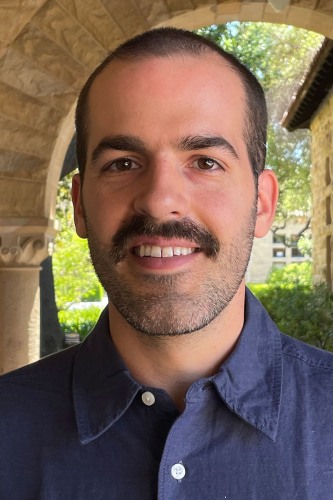
Esteban Salmón
Biography
Esteban Salmón (PhD, Stanford University) is an anthropologist whose research broadly examines the interactions between state power, legal practices, and political ideas. His work explores how criminal justice officers navigate the practical tensions between the promises of democracy and liberalism. In particular, Salmón’s research focuses on how criminal prosecutors and marginalized populations in Mexico City navigate the conflicting demands between intensifying punitive desires caused by the “War on Drugs” and stricter judicial restrictions on state violence.
Salmón’s earlier research focused on Mexican migration to the United States. His first book, "Navigating Borders: Cultural Difference, Labor, and Consumption among Mexican Undocumented Migrants in New York," was published in Spanish in 2018. This multi-sited ethnography examines how wage disparities created by the US-Mexico border transform kinship, racial relations, and consumer practices within transnational communities.
Salmón also writes in nonacademic genres and has written essays and reviews about criminal prosecution, video surveillance, true crime, and transnational migration for the anthropology magazine Sapiens and the Mexican political magazines Nexos and Letras Libres.
Research
Esteban Salmón’s ongoing research project is an ethnography of false criminal accusations, also known as frame-ups. It draws on over two years of fieldwork in criminal investigation agencies and criminalized neighborhoods in Mexico City to examine how overburdened prosecutors with limited investigation capacities systematically create false cases to punish alleged suspects while appearing to respect their rights. The project uses observation, interviews, and documentary research to understand how criminal justice officials and criminalized populations manage the conflicting demands of liberalism and democracy in their everyday interactions. It argues that state legitimacy depends on the bureaucratic ability to regulate violence selectively, balancing conflicting popular demands for quick punishment with the protection of rule of law safeguards for individual rights. Systematic frame-ups enable Mexican criminal prosecutors to preserve legitimacy by regulating state violence selectively. This research has been funded by the Fulbright Commission, the National Science Foundation, and the Social Sciences Research Council.
Publications
2023, “The Power of Criminal Prosecutors,” Sapiens Magazine (Podcast episode)
2023, “Inside Mexico City’s Surveillance State,” Sapiens Magazine
2023, “La nueva ola del true crime mexicano,” Nexos
2023, “Especialistas de la violencia,” Nexos
2018, Navegar fronteras. Diferencia cultural, trabajo y ostentación entre migrantes indocumentados en Nueva York. Zamora: El Colegio de Michoacán
Teaching
Summer 2025, Introduction to Anthropology, Stanford University
Spring 2023, Creative Writing in Spanish, Maple Street Jail
Fall 2020, Urban Culture in Global Perspective (with Prof. Thomas Blom Hansen), Stanford University
Winter 2020, Introduction to Anthropology (with Prof. James Ferguson), Stanford University